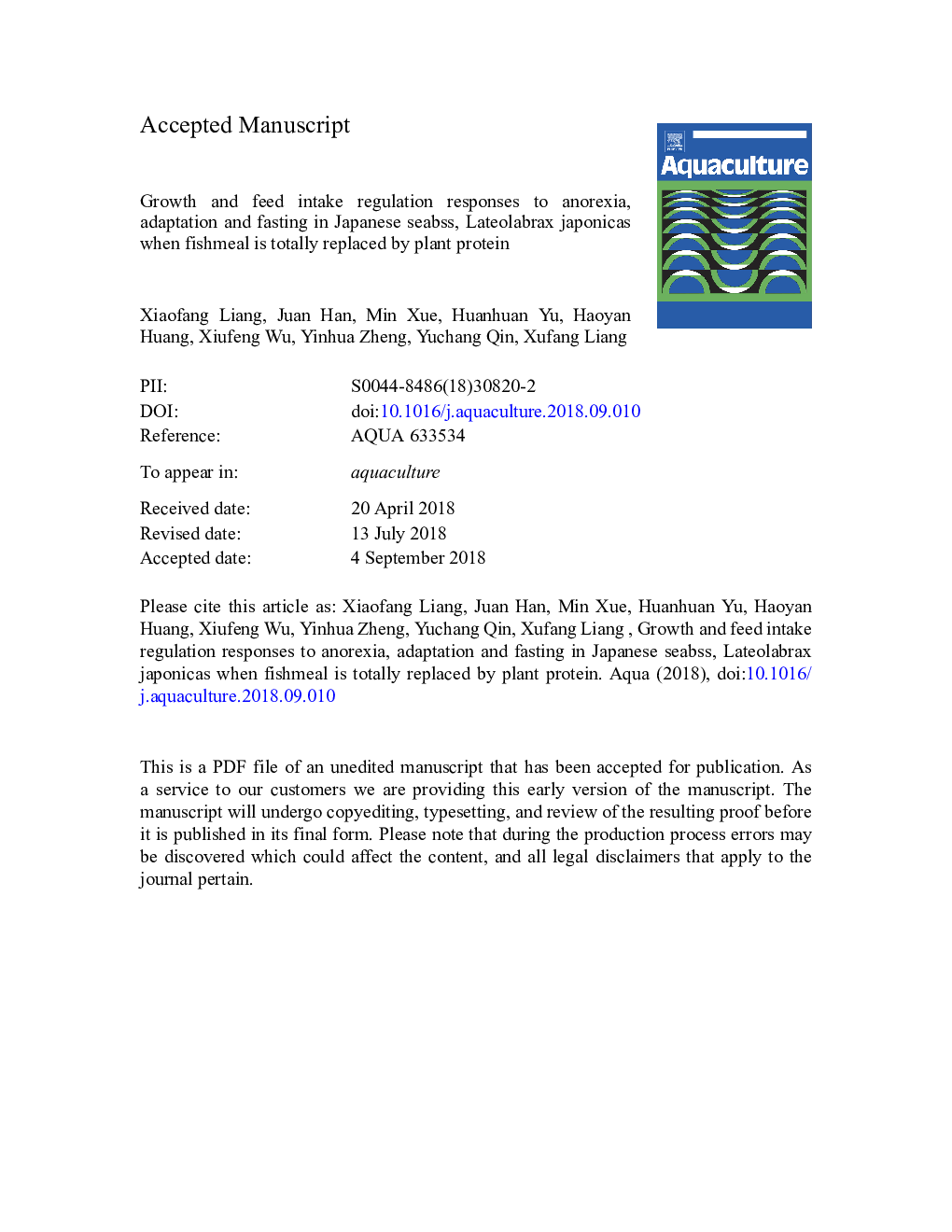| Article ID | Journal | Published Year | Pages | File Type |
|---|---|---|---|---|
| 11031932 | Aquaculture | 2019 | 44 Pages |
Abstract
In captivity, Lateolabrax japonicas, a carnivorous fish, is given fishmeal-based diets and does not thrive when fed plant proteins. In the present study, when dietary fishmeal was totally replaced with plant protein, the fish showed anorexia in the first 2â¯weeks followed by the phenotypes of feeding adaptation and compensation after 4â¯weeks. The negative energy balance resulting from anorexia in fish given the plant-based diet induced up-regulation of ghrelin and down-regulation of leptin transcription in the stomach, along with high plasma ghrelin concentration, which indicated that the peripheral organs were effective at sensing the nutrients intake deficiency. However, activation of mTOR in the hypothalamus decreased the phosphorylation of downstream S6K1, accompanied by further up-regulation of anorectic gene POMC and down-regulation of orexigenic gene AgRP expression in anorectic stage, indicating that the central nervous system (CNS) failed to respond to peripheral hungry. As soon as the fish adapted to the plant protein diet, no matter pre-prandial or fasting for 3â¯weeks, the regulating responses in CNS were consistent with the peripheral energy state. Therefore, the voluntary anorexia induced by plant protein was under different regulation mechanism from feeding adaption and the passive feeding inhibition caused by fasting.
Keywords
Related Topics
Life Sciences
Agricultural and Biological Sciences
Aquatic Science
Authors
Xiaofang Liang, Juan Han, Min Xue, Huanhuan Yu, Haoyan Huang, Xiufeng Wu, Yinhua Zheng, Yuchang Qin, Xufang Liang,
